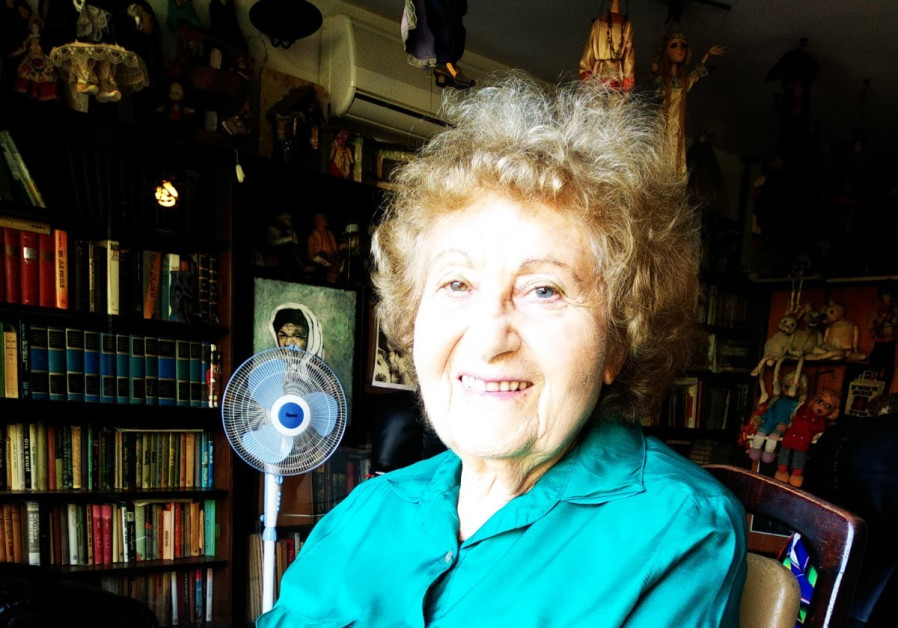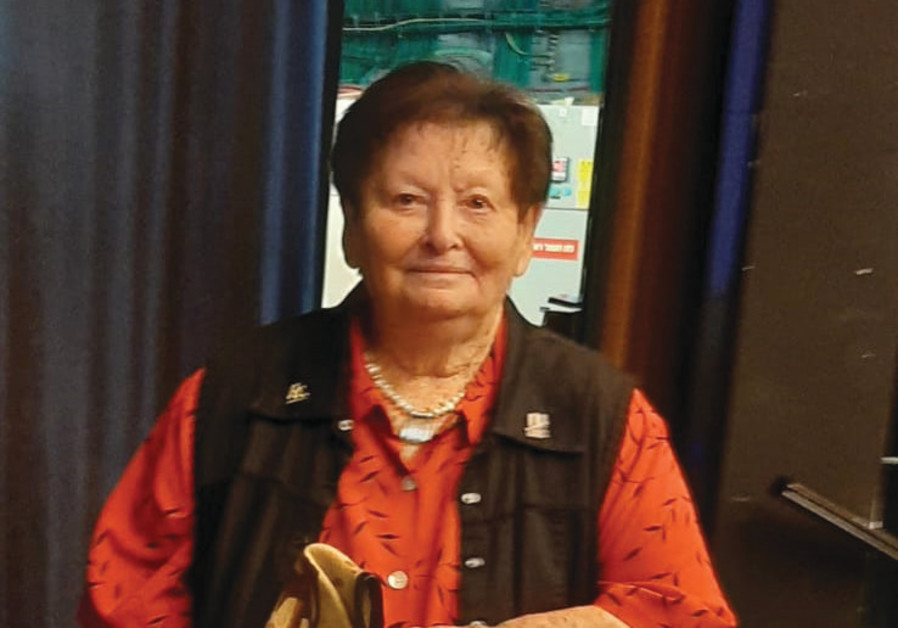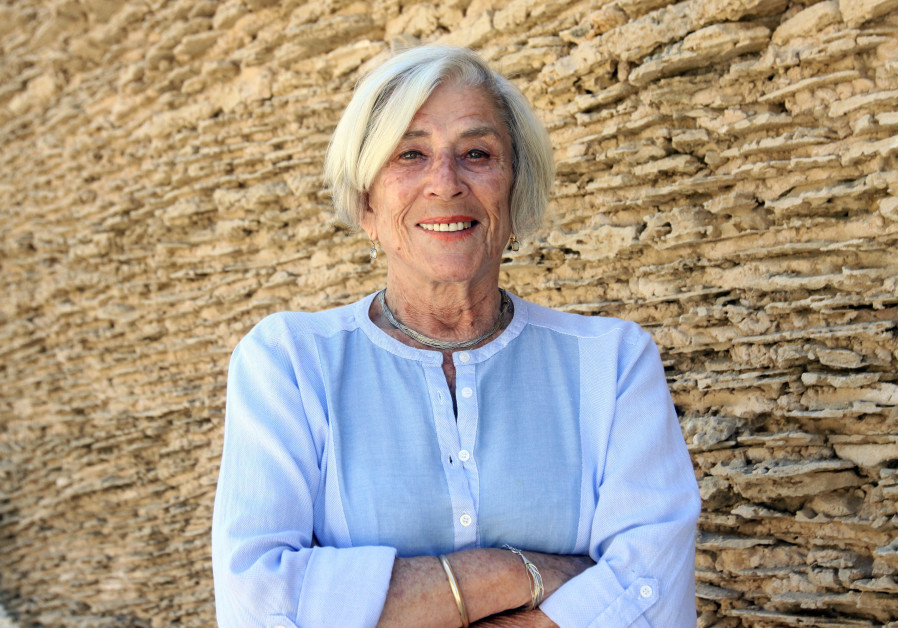From Yocheved Ben-Shmuel’s point of view, the battles of 1948 in which she took part as a Palmah combat medic along the road winding up the hills into Jerusalem, still remain etched in her memory as if they were part of a war movie. “During one battle, Shimeleh – who was only 16-and-a-half – was injured badly in the fighting,” Ben-Shmuel says, recalling how in one hand she held her Sten gun, and with the other helped Shimeleh take a sip of water from her canteen. “The Arabs had thrown a grenade at us, and I’d been injured by shrapnel in my leg and my back. I continued fighting, even though I was covered in blood. What choice did I have?”The Palmah was the elite fighting unit of the Hagana, the underground army of the Jewish community in Israel during pre-state times. At first the Palmah had been kind of like a men’s club, but after a couple of years, women began joining in large numbers and soon made up one-third of the force. Although few took on combat positions, women contributed tremendously to the success of the Palmah. Ben-Shmuel (née Mizrachi), 93, was born in Iraq. At age eight, she immigrated to Israel with her family, even though it was illegal at the time. “I joined the Palmah after training with the Noar HaOved VeHalomed at Kibbutz Ein Gev,” remembers Ben-Shmuel. “Following the November 29, 1947 UN Resolution, when the Arabs began disrupting intercity transportation, I began escorting convoys. To hide our weapons so the British wouldn’t confiscate them, we would wear baggy jackets. They never patted down the women. The first convoy I escorted ended up being quite a unique experience. It turned out that [David] Ben-Gurion and Golda [Meir] were traveling to the Jewish Agency in Jerusalem. The two of them were in a taxi, and we were following in an armored vehicle. Ben-Gurion didn’t say hello to me or even take notice of me there.”Ben-Shmuel was later sent on a medic’s course. “In just one week, we learned all the basic skills we needed to know,” she recalls. “We learned how to bandage wounds so they wouldn’t get infected.” Looking back, Ben-Shmuel finds it hard to believe she functioned under all that stress. “I wore a backpack with the first-aid kit, a canteen full of water, a stretcher with a blanket, a Sten gun and three cartridges full of bullets. The most difficult moment was when I was escorting a convoy and many of our fighters got injured. All of a sudden, so many of them were screaming at me, ‘Yocheved, help me!’ I tried to calm everyone down as quickly as possible so I could treat each one of them, even though they were still shooting at us. “People always ask me if I was scared, but there hadn’t been time to think about being scared. It was my job to save their lives, so that’s what I spent all of my energy doing and thinking about. I was completely focused on my job.”What do you think about the current controversy over women serving in IDF combat positions?“There’s no question in my mind: I salute every girl who serves in a combat position. I was so proud of my granddaughters who live in Italy – my daughter is married to an Italian man – since they all came back to Israel to carry out their IDF military service. One of them fought hard to become accepted to the combat medic corps. I’m so proud of her. “I’m also proud of myself for what I did to protect the State of Israel during the War of Independence. Many people hid and were killed anyway. But I feel so much pain in my heart when I see all of the horrible things taking place in Israel today, where the strong are taking advantage of the weak. This is not the kind of country we worked so hard to build.”WHEN RINA KALMAN (née Meushar), 91, is asked what attracted her to the Palmah, she replies that it was 100% her Zionist outlook. “The day I finished my studies at the agricultural high school for girls in Petah Tikva, I joined the Palmah’s training program,” recounts Kalman. “I loved the Palmah emblem, which has two stalks of wheat protected with a sword. Just before the British departed from Israel, I was assigned to serve as secretary for the Third Battalion. When I arrived there, I discovered that the commander was Shalom Havali, who was later replaced by Mula Cohen and then Moshe Kalman, whom I later married. We had a common goal: to establish a kibbutz and protect it. It’s natural that you would become emotionally involved with someone in times such as these, since you’re working together under intense circumstances and engaging in social and cultural activities together.” Kalman was injured during the War of Independence, but not in the midst of battle. “In early January 1948, when our battalion moved from the Galilee to Tzrifin, which at the time was a British base called Sarafand, I was injured in a bombing in Rishon Lezion carried out by Egyptian warplanes. I couldn’t use my right arm for an entire year afterward, but that didn’t prevent me from continuing with my military service – I just took on a different position.”What was the atmosphere like in the Palmah?“Just like people describe. We would all sit around a campfire, since that was the easiest way to maintain a feeling of equality among all the members. That way, everyone gets warmed to the same extent and no one feels left out. We’d pass around the finjan, and everyone would pour a little coffee for themselves. We’d sing songs for hours; The Palmah songs are such an important part of that era. We had an old gramophone, and we’d listen to classical music. If we had books, we’d read them and then pass them on to others. We spent lots of time sitting together on the grass. It was a wonderful feeling always spending time together.”Did any of the women experience any harassment?“I never kissed any of the guys in the Palmah, and I wasn’t the only one. One Palmah fighter, one of our most talented fighters, once told me I was part of this important mission, then asked me if I’d like to be his girlfriend. But we had very different political views, and for me that was a line I wouldn’t cross. Although for most Palmahnikim, once you joined the Palmah, everyone was treated like family regardless of your political association. Very strong friendships were formed among Palmah members.”YONA ARBEL (née Shatel), 92, was born in Switzerland. “When I joined the Palmah, I was sent to Beit Ha’arava, which was the hottest but also the most magical place in the world,” Arbel recalls. “It was hard, but also wonderful. We would sing while we sat around the campfire, and then someone would tell a scary story. “Our induction ceremony was held on top of Masada. The snake path hadn’t been created yet, and it was really hard climbing up to the top. I was given the job of hiding the weapons, which we would stash in locations outside of our campsite. It was my job was stand guard with a Luger pistol, which I’d never fired, and make sure no one came near our weapons cache.“Another one of our responsibilities was to smuggle in Jews over the Jordan River who were arriving from Iraq. On one of my missions, one man lost consciousness just as we were crossing and died. Once, in 1947, I was taken to Jerusalem. I had no idea why. We arrived at some place where we snatched a bunch of documents belonging to the Etzel [Irgun]. Only afterward did I realize I’d just participated in a raid on Etzel headquarters. The same night, we freed one of our comrades whom they’d captured. He died not long afterward in the War of Independence.”Arbel later took a secret wireless communications course, and still later during the war, served as a radio operator in southern Israel. After the war, Arbel became a teacher. 


Women of the Palmah: Hear their stories
The Palmah was the elite fighting unit of the Hagana, the underground army of the Jewish community in Israel during pre-state times.
